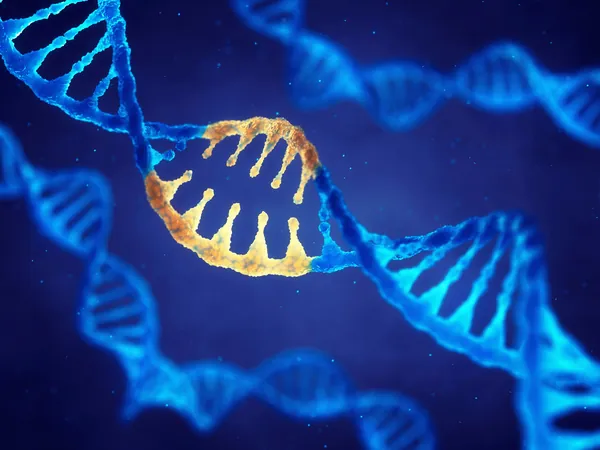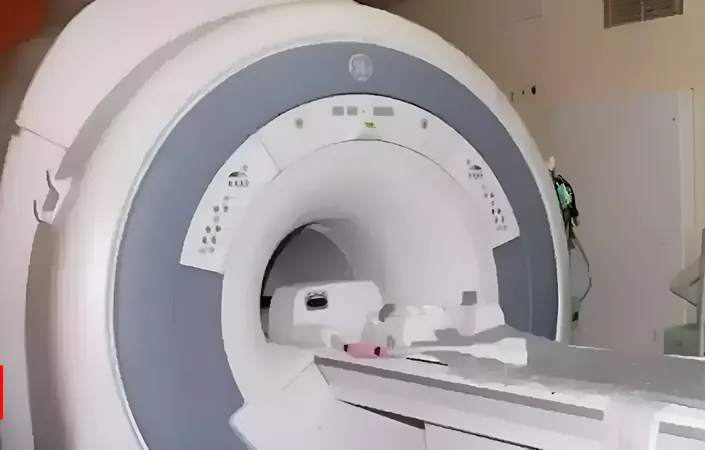
Unlocking Cancer's Secrets: How Your DNA Can Shape Treatment Strategies
2025-04-16
Author: Arjun
Revolutionary Research Sheds Light on Genetic Variants and Cancer
A groundbreaking study has revealed that germline genetic variants—the inherited genetic differences we all carry—significantly influence the nature of an individual's cancer. Published in the prestigious journal Cell, this research opens new avenues toward tailoring cancer treatments to fit each patient’s unique genetic blueprint.
Precision Peptidomics: A Game Changer in Cancer Research
Involving a global team of experts, this study employed a technique known as "precision peptidomics" to analyze coding germline variants in over 1,000 cancer patients. By mapping these variants to peptides derived from mass spectrometry, the researchers were able to examine how they affect protein functions within tumors.
Co-author Dr. Zeynep H. Gümüş, a leading geneticist from the Icahn School of Medicine, emphasized that these inherited variants play an active role—not just sitting idly in the background. "They influence tumor formation, evolution, and treatment response, paving the way for more personalized cancer care based on both tumor characteristics and the patient’s genetic profile,” she said.
Study Insights: Uncovering Hidden Connections
The research team, which included experts from Washington University and the Clinical Proteomic Tumor Analysis Consortium, scrutinized 337,469 germline variants across different cancer types. They discovered that certain genetic alterations can affect critical processes, such as protein modifications and stability.
Particularly notable were variants in the ERBB2 and MAP2K2 genes, linked to pivotal phosphorylation processes, and destabilizing variants in SIRPA and GFAP, crucial for immune responses in glioblastoma patients. Polygenic risk scores revealed a correlation between inherited variants and their impact on cancer behavior.
A Leap Toward Personalized Medicine
Dr. Gümüş remarked on the significance of these findings, stating they help explain the variations in cancer characteristics and treatment responses among patients. Co-first author Dr. Myvizhi Esai Selvan added, "This study marks a transformational stride toward precision medicine that prioritizes the whole person rather than just the disease. The genetic foundation informs how aggressive cancers may become and how effectively the immune system can respond."
Future Directions: Enhancing Immunotherapy and Predictions
Looking ahead, this collaborative effort aims to leverage these insights for improving immunotherapy effectiveness and enhancing lung cancer predictions. However, researchers caution that the data was primarily derived from a European-ancestry group, indicating a need for validation across diverse populations.
This study not only highlights the importance of personalized medicine but also showcases the potential of genetic insights to revolutionize cancer treatment strategies and patient care.



 Brasil (PT)
Brasil (PT)
 Canada (EN)
Canada (EN)
 Chile (ES)
Chile (ES)
 Česko (CS)
Česko (CS)
 대한민국 (KO)
대한민국 (KO)
 España (ES)
España (ES)
 France (FR)
France (FR)
 Hong Kong (EN)
Hong Kong (EN)
 Italia (IT)
Italia (IT)
 日本 (JA)
日本 (JA)
 Magyarország (HU)
Magyarország (HU)
 Norge (NO)
Norge (NO)
 Polska (PL)
Polska (PL)
 Schweiz (DE)
Schweiz (DE)
 Singapore (EN)
Singapore (EN)
 Sverige (SV)
Sverige (SV)
 Suomi (FI)
Suomi (FI)
 Türkiye (TR)
Türkiye (TR)
 الإمارات العربية المتحدة (AR)
الإمارات العربية المتحدة (AR)